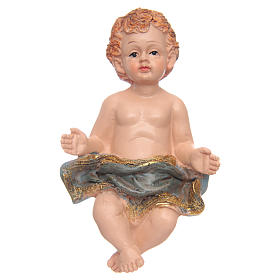Lenten Campaign 2025
This content is free of charge, as are all our articles.
Support us with a donation that is tax-deductible and enable us to continue to reach millions of readers.
December 25th has marked the celebration of Jesus Christ's birth for most Christians ever since the 4th or 5th century, but scholars question whether that date is historically accurate. The Gospels themselves do not pinpoint an exact date, but they do offer some clues.

St. Luke's Gospel
St. Luke gives us the most information regarding the birth of Jesus.
In those days a decree went out from Caesar Augustus that all the world should be enrolled. This was the first enrollment, when Quirin′i-us was governor of Syria. And all went to be enrolled, each to his own city. And Joseph also went up from Galilee, from the city of Nazareth, to Judea, to the city of David, which is called Bethlehem... And [Mary] gave birth to her first-born son and wrapped him in swaddling cloths, and laid him in a manger, because there was no place for them in the inn.
This and the fact that the shepherds are out with their sheep during the night could point, according to some scholars, to "the spring lambing season." However, shepherds in this region are found with their sheep at all times of the year and so this evidence does not definitively pinpoint a particular season of the year.
The most striking evidence is in regards to the star that hovers over Bethlehem. In Matthew we read, "wise men from the East came to Jerusalem, saying, 'Where is he who has been born king of the Jews? For we have seen his star in the East, and have come to worship him'" (2:1-2).
According to Colin J. Humphreys there are several different options when astronomical data is compared to historical events.
Assuming the Star of Bethlehem was a comet, there were 3 possible years, 12, 5, and 4 B.C. By using the one relevant, fixed date in the Gospels, the 15th year of Tiberius Caesar (A.D. 28/29), at which time Jesus is described as "about 30," [cf Luke 3] 12 B.C. is too early for the date of Jesus' birth, since by A.D. 28 he would have been 40. Herod the Great is generally assumed to have died in the spring of 4 B.C., but was alive when Jesus was born, which makes 4 B.C. unlikely, although possible. In addition, the Chinese do not describe the comet of 4 B.C. This leaves 5 B.C., the date Humphreys prefers. The Chinese say the comet appeared between March 9 and April 6 and lasted over 70 days.
Taking everything into account, "Humphreys deduces that Jesus was born between March 9 and May 4, [in the year] 5 B.C."
Other astronomers, like Dave Reneke, claim that "on 17 June in the year 2 BC, Venus and Jupiter were so close they would have appeared as 'one bright beacon of light.'"
Another real possibility is that Jesus was born on December 25th, which some historians and astronomers argue.
Whatever astronomy can tell us, some still believe that the star over Bethlehem was simply "miraculous" and a supernatural phenomenon. This would negate any of the previous data, making the date of Christ's birth any day of the year.
In the end, we may never know on this side of eternity the historical date of Jesus' birth. What's most important is the reality of the incarnation and how Christ came upon earth to bring us salvation. It was an event that changed the world and hopefully changes our hearts each time we celebrate it.









